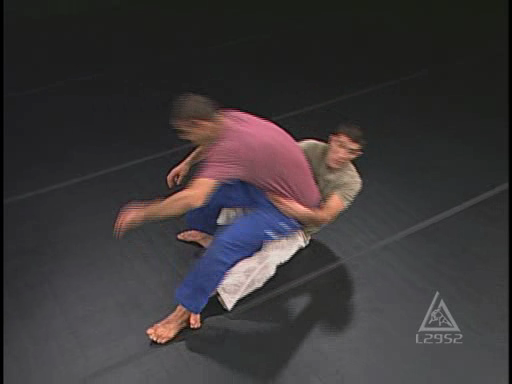Musings from the BJJ Gi #27, lesson 29; rear takedown & elevator sweep

The rear takedown indicator (in this drill), is clinching with your opponent, and they try to push your head down into a guillotine choke. You stand up straight and look upward, pushing your head up behind their (attempted) guillotine-ing arm, so that they are sort of bent forward a little bit. You then circle around to the rear clinch. There's a particular angle for the rear clinch, as it's not standing side-on, and it's not standing directly behind, but rather in between those two options. Your shoulder/neck/side of your head should lock nicely into the shape of the side of their hip and lower back. We usually do a few practice set-ups of the takedown itself before actually doing the full thing, just to get familiar with the action of going down. But yeah, there's a small set-up step, and then the other leg extends straight and you slap the sole of that foot against the heel of your opponent, then squat down on your set-up step leg, and with a 'bungee-cord' action, give your opponent a firm yank around their waist before letting go and tucking your arms in to your chest as they go down, and follow them over with your outer leg so that you land in modified mount.
The elevator sweep has two variations (in Combatives); standard, and headlock. I understand the general principles of this movement reasonably well, as being that the indicator for it is if you have a 'stacker' in your closed guard, and they stack by getting up on one leg, they are accordingly quite top-heavy, meaning their legs are comparatively light. So you control their arm on the opposite side to their stacking leg, get your hips out to that side, hook your foot underneath their stacking knee, get and arm underhook on that same side, and then lift and chop! The same principles apply with the headlock variation, except that rather than securing their arm in tight so that you can roll over the top of it, given that that arm is now up around your neck (and their elbow is also acting as a base support for them against the ground), you slide their elbow north, so that they get turned over with their arm up above their head.
It was a good lesson, I just had a bit of mental fog for it so I was on autopilot a little bit, but I learned something from going over it all again :)
Cheers,
- David